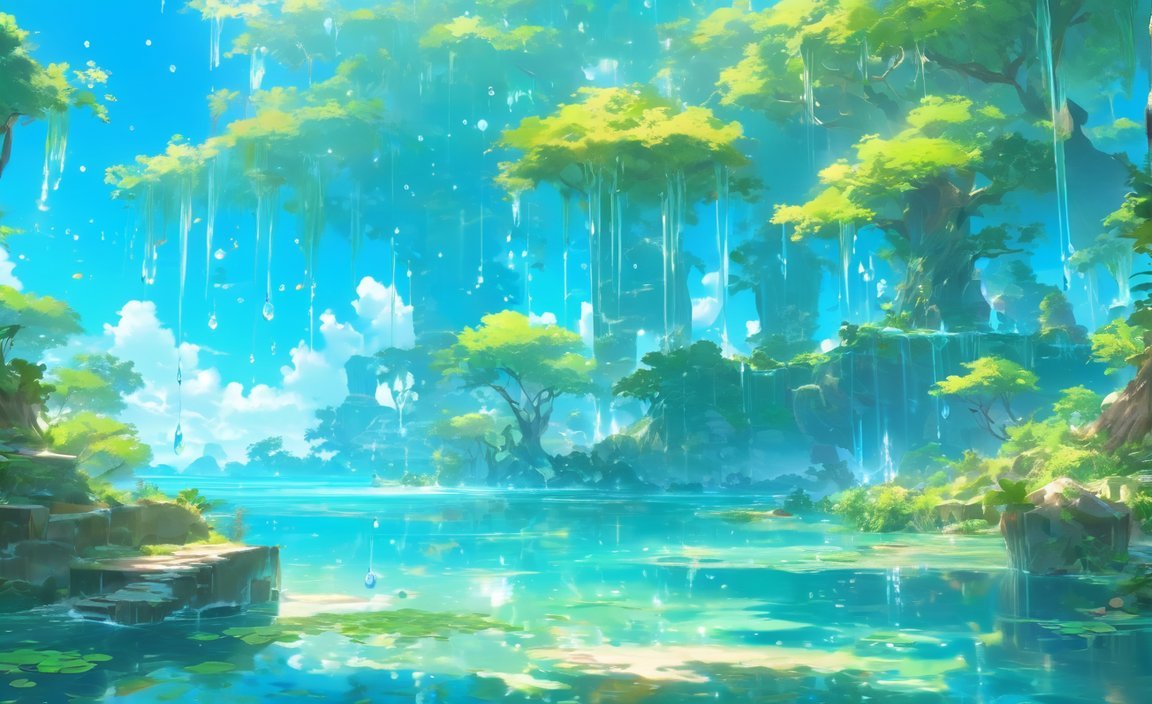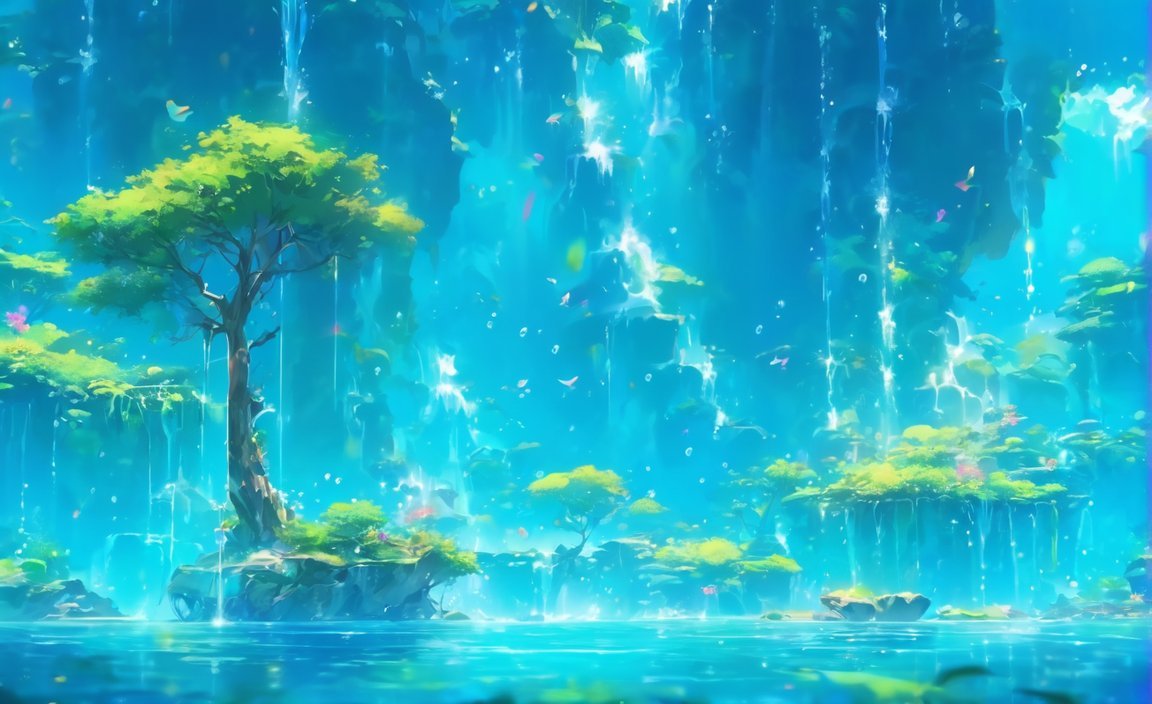Welcome to [The 10 Key Points on Water Conservation: Preserving our Planet’s Future], where we delve into the crucial aspects of water conservation that have a direct impact on our planet’s future. As sustainability becomes an increasingly important issue, it is vital to understand the significance of conserving our most precious resource – water. Through this article, we aim to highlight ten key points that showcase the importance of water conservation and inspire individuals to take action towards a sustainable and thriving future.
Key Takeaways:
- Water conservation aims to preserve freshwater resources on our planet.
- By reducing water waste and using water more efficiently, we can conserve water.
- Water conservation also helps conserve fuel resources and reduce pollution associated with processing and delivering water.
- It plays a vital role in managing droughts and ensuring a sustainable water supply for communities, businesses, and agriculture.
- Marine conservation is crucial in protecting and preserving water ecosystems impacted by human activities.
- Practical tips for water conservation include fixing leaks, using water-efficient appliances, and practicing responsible water usage.
- Energy conservation is closely linked to water conservation due to the significant energy consumption of water pumping, delivery, and wastewater treatment facilities.
- Water conservation is essential for preserving water sustainability and ensuring a sustainable future.
- It is a global priority, requiring innovative policies, technologies, and individual actions to reduce water waste and promote efficiency.
- Planting trees helps retain water, reduce runoff, and prevent soil erosion, making it important for water conservation efforts.
10 Points on Importance of Water Conservation

Water conservation plays a vital role in preserving our planet’s future and ensuring the sustainability of our precious freshwater resources. By understanding the significance of water conservation, we can take action to protect this essential natural resource. Here are 10 key points that highlight the importance of water conservation:
1. Conserving Freshwater Resources
Efforts in water conservation aim to conserve the limited freshwater resources available on our planet. With only about 2.5% of the Earth’s water being freshwater, it is crucial to protect and manage this valuable resource effectively. By practicing water conservation, we can strive to preserve the quality and availability of freshwater for current and future generations.
2. Reducing Water Waste and Promoting Efficiency
Water conservation helps us reduce water waste and use this valuable resource efficiently. By being mindful of our water consumption habits, such as turning off the tap when not in use and fixing leaks promptly, we can make a significant impact on reducing unnecessary water waste.
3. Saving Energy and Reducing Pollution
Reducing water usage not only conserves water but also saves energy. The processing, delivery, and treatment of water require a substantial amount of energy. By conserving water, we can reduce the energy demand, thereby conserving fuel resources and helping to lower pollution levels.
4. Managing Droughts and Ensuring Water Supply
Water conservation is vital for managing droughts and ensuring a sustainable supply of water for communities, businesses, and agriculture. By adopting water-saving practices during times of water scarcity, we can help mitigate the impacts of drought and maintain a consistent water supply for essential needs.
5. Protecting Marine Ecosystems
Marine conservation is closely connected to water conservation as it aims to protect and preserve the delicate ecosystems in water systems. Human activities directly impact these ecosystems, making it crucial to take measures to conserve water and reduce pollution to ensure the health and longevity of marine life.
6. Practical Tips for Water Conservation
Implementing practical tips for water conservation can make a significant difference in reducing water waste. Regularly checking for leaks, using water-efficient appliances, and practicing responsible water usage are some simple yet effective ways to conserve water in our daily lives.
7. Linking Water and Energy Conservation
Water conservation and energy conservation go hand in hand. Water pumping, delivery, and wastewater treatment facilities consume a significant amount of energy. By conserving water, we indirectly contribute to energy conservation, creating a positive impact on both our environment and our energy resources.
8. Preserving Water Sustainability for the Future
Water conservation is essential for preserving water sustainability and ensuring a sustainable future for generations to come. By adopting responsible water conservation practices, we can help safeguard the availability of water resources and maintain the delicate balance of ecosystems that rely on them.
9. Addressing a Global Priority
Water conservation is a global priority that demands action from individuals, communities, governments, and industries. Innovative policies, technologies, and individual actions are needed to reduce water waste, promote efficiency, and address the challenges of water scarcity, ensuring a sustainable future for all.
10. Planting Trees for Water Conservation
Planting trees is another crucial aspect of water conservation. Trees help retain water, reduce runoff, and prevent soil erosion. By sustaining healthy forests, we contribute to the overall conservation of water resources and the preservation of vital ecosystems.
In conclusion, water conservation is crucial for the long-term sustainability of our planet and the well-being of its inhabitants. By understanding the importance of water conservation and implementing simple yet impactful practices in our daily lives, we can make a positive impact and contribute to the preservation of our planet’s future. It is our collective responsibility to protect and conserve this precious resource for generations to come.
Water is an essential element for our survival and holds great importance. If you want to know more about the significance of water, click on the link to explore these 10 points on the importance of water: 10 points on importance of water.
Are you a student studying in class 5? Discover why water is crucial for you by checking out these 10 points on the importance of water specifically tailored for your class: 10 points on importance of water for class 5.
India’s rich biodiversity includes some rare and incredible animals. To learn about 10 rare animals in India, click on the link: 10 rare animals in India.
Preserving Aquatic Ecosystems and Biodiversity

Water conservation is not just about saving water for our immediate needs; it is also vital for preserving aquatic ecosystems and biodiversity, which play a critical role in maintaining the balance of our planet. By understanding the importance of water conservation, we can take action to protect our fragile ecosystems and ensure a sustainable future for generations to come.
Key Points on Preserving Aquatic Ecosystems and Biodiversity
Water and Ecosystem Services: Aquatic ecosystems, including both marine and freshwater habitats, provide essential services that influence the availability and quality of water. Conserving water is crucial for maintaining the well-being of these ecosystems, as they contribute to processes like water purification and flood prevention.
The Significance of Biodiversity: Biodiversity in water habitats is crucial for the conservation of aquatic ecosystems. It supports the balance of species and interactions within these habitats, contributing to their long-term health and resilience. Preserving biodiversity in aquatic ecosystems is a key component of preserving water resources and ensuring their sustainable use.
Role of Freshwater Conservation Scientists: Scientists working in the field of freshwater conservation systems play a vital role in halting the deterioration of these ecosystems. Their research and conservation efforts contribute to the preservation and rehabilitation of freshwater biodiversity, ultimately helping to secure our water resources for the future.
Conserving Land Areas for Biodiversity and Carbon: Protecting the top-ranked 10% of land areas for biodiversity and carbon can have a significant impact on global carbon storage, species diversity, and water quality regulation. Safeguarding these critical areas is crucial for preserving the delicate balance of ecosystems and the services they provide.
Strategies for Freshwater Biodiversity Conservation: A range of strategies can be implemented for freshwater biodiversity conservation. These include monitoring species variety, population dynamics, and water quality. Addressing threats such as engineered nanomaterials and climate change is also essential to safeguard the health of aquatic ecosystems and protect biodiversity.
Insights from “Aquatic Biodiversity Conservation and Ecosystem Services”: The book “Aquatic Biodiversity Conservation and Ecosystem Services” offers valuable insights into the state of local biodiversity, challenges in management and conservation, and new approaches in aquatic systems. Exploring this resource can provide essential knowledge on how to effectively preserve and protect aquatic ecosystems.
The Convention on Biological Diversity: The Convention on Biological Diversity emphasizes the importance of water and biodiversity conservation. It highlights the need for preventive measures to limit invasions and protect ecosystems, with a particular focus on preserving and nurturing our water resources.
Key Takeaways:
- Water conservation is crucial for preserving aquatic ecosystems and biodiversity.
- Biodiversity in water habitats plays a significant role in maintaining the balance and resilience of aquatic ecosystems.
- Scientists working in freshwater conservation contribute to the preservation and rehabilitation of freshwater biodiversity.
- Conserving land areas for biodiversity and carbon can have far-reaching benefits for global carbon storage, species diversity, and water quality regulation.
- Strategies for freshwater biodiversity conservation involve monitoring species variety, population dynamics, and addressing threats like climate change.
- The book “Aquatic Biodiversity Conservation and Ecosystem Services” offers valuable insights into managing and conserving aquatic systems.
- The Convention on Biological Diversity emphasizes preventive measures to protect water resources and ecosystems.
Citation:
– MasterClass: Understanding the Importance of Water Conservation
– ScienceDirect: Water Biodiversity: Ecosystem Services, Threats, and Conservation
The Connection Between Water Conservation and Energy Efficiency
Water conservation and energy efficiency are two critical practices that are closely linked and have a significant impact on our environment and sustainability efforts. By understanding the connection between these two areas, we can work towards a more efficient and sustainable future.
Importance of Water Conservation
Conserving freshwater resources is crucial for preserving the quality and availability of water for current and future generations. Effective water conservation helps to reduce water waste and promote the efficient use of this valuable resource. Not only does it save water, but it also has a positive impact on energy consumption and pollution reduction.
Water processing and treatment require a significant amount of energy. By conserving water, we can also save energy and reduce pollution. In fact, roughly 4 percent of energy is needed to treat and deliver clean water. By investing in water conservation, we can protect the climate by emitting less carbon pollution.
Furthermore, water conservation plays a vital role in managing droughts and ensuring a sustainable water supply for communities. It is closely linked to marine conservation as well, as it helps protect and preserve marine ecosystems.
Importance of Energy Efficiency
When it comes to energy consumption, water facilities are significant contributors. By conserving water, we can indirectly conserve energy as well. For instance, efforts to improve water and energy efficiency have historically been pursued separately. However, integrating these two areas can lead to more effective and sustainable outcomes.
Conserving water not only reduces the need for energy-intensive water treatment but also lowers the energy required for activities such as pumping, heating, and cooling. By using water-efficient appliances and fixing leaks, individuals can make a significant difference in conserving both water and energy.
The Interconnected Nature of Water Conservation and Energy Efficiency
Saving energy and water is not a choice between one or the other; they are interconnected. Combining these efforts can lead to significant benefits for both the environment and society as a whole.
For instance, water efficiency measures can help protect areas prone to drought, lower consumers’ utility bills, and reduce global warming pollution. By replacing coal-fired power generation with renewable sources like solar PV and wind, withdrawals of water in the power sector have decreased by nearly 15%. This shift highlights the connection between water conservation and energy efficiency.
Key Takeaways:
- Conserving freshwater resources is essential for preserving water quality and availability.
- Water conservation helps reduce water waste and promotes efficient use of water.
- Saving water also saves energy and reduces pollution.
- Water conservation is vital for managing droughts and ensuring a sustainable water supply.
- Water conservation is closely linked to marine conservation, protecting marine ecosystems.
- Practices such as fixing leaks and using water-efficient appliances make a significant difference.
- Water facilities consume energy, making water conservation crucial for energy efficiency.
- Preserving water sustainability maintains the balance of ecosystems.
- Water conservation is a global priority requiring action from individuals, communities, governments, and industries.
- Planting trees aids water conservation by retaining water, reducing runoff, and preventing soil erosion.
Sources:
1. MasterClass: Understanding the Importance of Water Conservation
2. ScienceDirect: Water Biodiversity: Ecosystem Services, Threats, and Conservation
Addressing the Social and Economic Implications of Water Scarcity
Water scarcity is a pressing global issue with significant social and economic implications. As we strive to address this challenge, it is crucial to understand the multifaceted nature of water scarcity and its impact on society and economies. Here are ten key points that shed light on the social and economic implications of water scarcity, emphasizing the need for urgent action:
1. Water scarcity and economic impact
Water scarcity can have both negative and positive economic impacts. While scarcity often leads to economic challenges, basins with a surplus of water can benefit from increased economic opportunities.
2. Water scarcity as a major challenge
Water scarcity is a major challenge that affects both physical and economic aspects of human society. The availability and accessibility of water directly impact social and economic development.
3. The behavior of society and water scarcity
Water scarcity directly influences the behavior of society, prompting changes in water consumption patterns. Adapting to limited water resources becomes crucial for sustainable development.
4. Factors contributing to global urban water scarcity
Global urban water scarcity is influenced by socioeconomic factors such as water demand and urban population, along with climatic factors such as water availability. Understanding these factors is essential to address water scarcity in urban areas effectively.
5. Limitations in studying water scarcity
Studies on water scarcity often have limitations, such as focusing on specific subsets of the population or considering only certain aspects of the problem. Taking a holistic approach is necessary to develop comprehensive solutions.
6. Water scarcity in developing country contexts
Addressing water scarcity in developing country contexts requires considering multiple perspectives, including economic and psychological aspects. Collaborative efforts are needed to ensure equitable access to water resources.
7. The delicate balance between population growth and water resources
Water scarcity is a delicate balance between population growth and the available water resources. As the world’s population continues to grow, water conservation becomes increasingly essential for a sustainable future.
8. The importance of functional ecosystems
Well-functioning ecosystems play a vital role in ensuring the availability and quality of water. Conserving biodiversity in marine and freshwater ecosystems is crucial for water conservation efforts.
9. Strategies for freshwater biodiversity conservation
Scientists working on freshwater conservation can contribute to halting ecosystem deterioration by conserving and rehabilitating freshwater biodiversity. Monitoring species variety, population, and water quality, and addressing threats are essential strategies.
10. The Convention on Biological Diversity’s focus on water and biodiversity
The Convention on Biological Diversity recognizes the importance of water and biodiversity conservation. Emphasizing preventive measures to limit invasions and protect ecosystems is crucial for sustainable water management.
Key Takeaways:
– Water scarcity has both negative and positive economic impacts.
– Water scarcity is a major challenge affecting society and economies.
– Behavior alteration is necessary to adapt to limited water resources.
– Factors such as water demand and availability contribute to global urban water scarcity.
– Comprehensive studies are needed to address the limitations of water scarcity research.
– Collaborative efforts are required to tackle water scarcity in developing countries.
– Balancing population growth with available water resources is crucial.
– Conserving biodiversity in ecosystems is essential for water conservation.
– Monitoring and addressing threats are important strategies for freshwater biodiversity conservation.
– The Convention on Biological Diversity highlights the importance of preventive measures for water and biodiversity conservation.
Sources:
– Nature: Evaluating the economic impact of water scarcity in a changing world
– ScienceDirect: Impacts of water scarcity on socio-economic development: A case study of Shaanxi Province in China
FAQ
Q1: Why is water conservation important?
A1: Water conservation is important because it aims to conserve the freshwater resources on our planet and ensure a sustainable supply of water for communities, businesses, and agriculture. It also helps to reduce water waste, conserve fuel resources, and reduce pollution associated with water processing and delivery. Additionally, water conservation plays a vital role in managing droughts and preserving the delicate ecosystems in water systems impacted by human activities.
Q2: What are some practical tips for water conservation?
A2: Some practical tips for water conservation include regularly checking for and fixing leaks, using water-efficient appliances, practicing responsible water usage, and planting trees. These actions can help reduce water usage, prevent water waste, and promote sustainable practices for a flourishing future.
Q3: How does water conservation relate to energy conservation?
A3: Water conservation and energy conservation are closely related. Water pumping, delivery, and wastewater treatment facilities consume a significant amount of energy. By conserving water, we can reduce the energy required to process and deliver water, thus helping to conserve fuel resources and reduce greenhouse gas emissions. Investing in water conservation can also help protect the climate and contribute to efforts in saving energy.
Q4: Is water conservation a global priority?
A4: Yes, water conservation is a global priority. With the increasing water scarcity and the growing recognition of the importance of sustainable water management, efforts should focus on innovative policies, technologies, and individual actions to reduce water waste and promote efficiency. Water conservation initiatives and practices are crucial for ensuring a sustainable future for generations to come.
Q5: How does water conservation contribute to biodiversity conservation?
A5: Water conservation plays a crucial role in conserving biodiversity, particularly in freshwater and marine ecosystems. Well-functioning ecosystems, supported by water conservation efforts, provide services that influence the availability and quality of water. Conserving biodiversity in water habitats is essential for maintaining healthy ecosystems and preserving water sustainability. Efforts such as monitoring species variety, population, and water quality, as well as addressing threats like climate change and engineered nanomaterials, can help in freshwater biodiversity conservation.
- China II Review: Delicious Food & Speedy Service - April 17, 2025
- Understand Virginia’s Flag: History & Debate - April 17, 2025
- Explore Long Island’s Map: Unique Regions & Insights - April 17, 2025
















